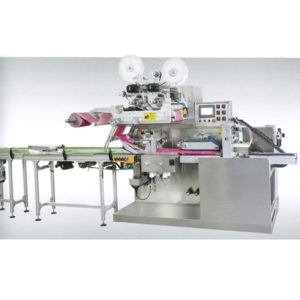There are several common issues that may arise with wipe machines, including:
Jammed or misaligned rollers: Over time, rollers in the wipe machine can become jammed or misaligned, causing the machine to malfunction and produce imperfect wipes.
Blade or cutting mechanism issues: Problems with the blade or cutting mechanism can result in uneven or incomplete cuts, leading to wastage of materials and reduced efficiency.
Tension issues: Issues with tension can cause the wipes to be too loose or too tight, resulting in poor quality or inconsistent wipes.
Electrical or mechanical issues: Electrical or mechanical faults can cause the machine to stop working or malfunction, leading to downtime and lost productivity.
Poor quality or inconsistent wipes: If the machine is not properly maintained or calibrated, it can produce poor quality or inconsistent wipes, which can result in customer complaints or lost business.
Material or feed issues: Problems with the feed system or materials can result in uneven or incomplete wipes, or even cause the machine to jam or malfunction.
Operator error: Improper use or operation of the machine can cause issues such as uneven cuts, material wastage, or even damage to the machine itself.
It’s important to address these issues promptly to prevent further damage or downtime. Regular maintenance and upkeep, as well as proper training and operation of the machine, can help prevent many of these issues from arising in the first place. how to start a diaper business Additionally, it’s important to choose a high-quality wipe machine from a reputable manufacturer with a good track record of performance and customer support.
How can operators be properly trained to use a wipe machine?
Proper training of operators is crucial for the safe and effective use of a wipe machine.
Here are some tips for training operators to use a wipe machine:
Read the manual: The operator should read the manual provided by the manufacturer to understand how the machine works, its components, and its capabilities.
Attend training sessions: If there are training sessions or workshops available, operators should attend them to become familiar with the machine and its operation.
Observe experienced operators: Operators should observe experienced operators using the machine to learn best practices and techniques.
Practice with scrap materials: Before using the machine on actual materials, operators should practice with scrap materials to get a feel for the machine and its capabilities.
Follow safety guidelines: Operators should be trained on the safety guidelines for using the machine to prevent accidents or injuries.
Troubleshooting techniques: Operators should be trained on basic troubleshooting techniques to identify and fix common issues that may arise during operation.
Maintenance and upkeep: Operators should be trained on the maintenance and upkeep of the machine to ensure optimal performance and longevity.
It’s important to provide ongoing training and support to operators to ensure that they are properly trained and equipped to use the machine safely and effectively. Additionally, it’s important to encourage operators to ask questions and provide feedback to help improve the operation of the machine.
Proper training is essential for operators to use a wipe machine safely and effectively.
Here are some steps to properly train operators to use a wipe machine:
Review the manufacturer’s instructions: The manufacturer’s instructions and user manual should be reviewed thoroughly before operating the machine, China wipe machine to ensure that operators understand the features and functions of the machine, as well as any potential hazards or safety precautions.
Hands-on training: Hands-on training is essential to ensure that operators understand how to operate the machine safely and effectively. This may involve a combination of classroom instruction and practical training on the machine itself.
Safety training: Operators should be trained on the proper safety procedures for operating the machine, including how to handle materials, how to avoid jams or misalignments, and how to shut down the machine in case of an emergency.
Maintenance and cleaning: Operators should be trained on the proper maintenance and cleaning procedures for the machine, to ensure that it operates safely and efficiently over the long term.
Troubleshooting: Operators should be trained on common issues that may arise with the machine, as well as how to troubleshoot and resolve these issues. This can help prevent downtime and lost productivity.
Ongoing training: Ongoing training and refresher courses can help ensure that operators stay up-to-date with the latest procedures and safety protocols, and can help prevent accidents or mistakes.
It’s important to provide clear and concise training materials, as well as hands-on training and support, to ensure that operators are properly trained to use the wipe machine. Additionally, it’s important to provide ongoing support and training to ensure that operators stay up-to-date with the latest procedures and best practices.



